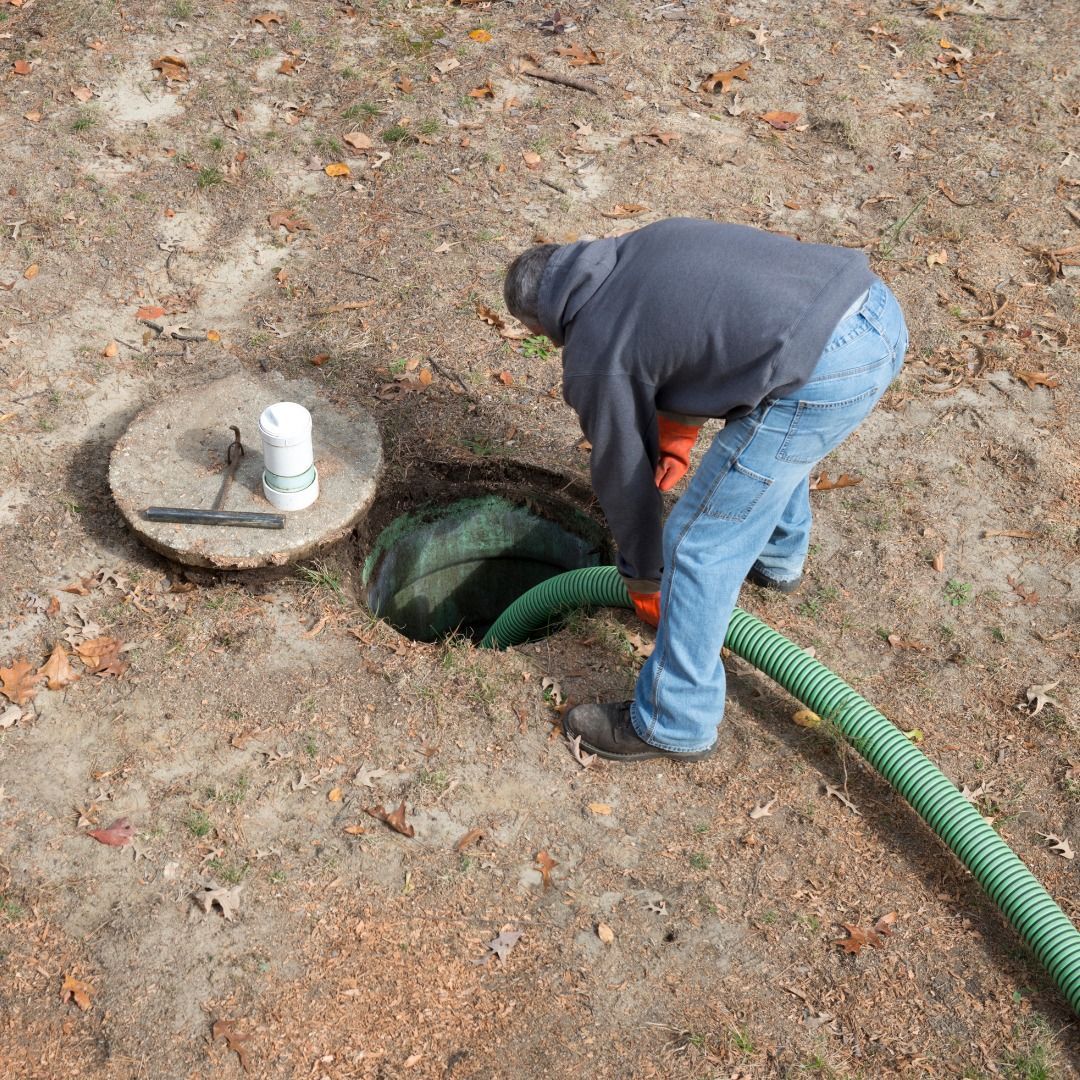Septic System Maintenance in Eatonton, Georgia
Regular maintenance of your septic system is crucial. It ensures the system works properly and lasts longer. Without regular checks, minor problems can turn into big, costly ones. Well-maintained systems protect the environment and your property's safety in Eatonton, Georgia.
JC Siteworks & Septic provides professional septic system maintenance services. Our team has over 25 years of experience. We offer thorough inspections and routine maintenance. Our goal is to keep your septic system running smoothly. We identify and fix problems early, saving you time and money. Trust us to take care of your septic system with expertise and efficiency.
Specialized Maintenance Services for Your Septic System
Cleaning and Filter Replacement
Regular cleaning of septic tanks is crucial. We remove waste and debris. Filters are also replaced to ensure smooth operation. Our team uses effective methods for thorough cleaning and installs high-quality filters.
Leak Detection and Repair
Leaks in a septic system can cause significant issues. We use tools to detect leaks and repair them promptly. Our experts are trained in identifying and fixing leaks efficiently to prevent damage and contamination.
Drain Field Maintenance
The drain field is vital in treating wastewater. We maintain this area to prevent clogs and ensure proper absorption. We carefully inspect and maintain drain fields, ensuring they are free from obstructions and working correctly.
System Performance Testing
Regular testing assesses the septic system's performance. We check for any functional issues. We conduct comprehensive performance tests using advanced tools and provide solutions for any identified problems.
Pipe and Inlet/Outlet Check
Ensuring pipes, inlets, and outlets are clear is essential. We check these components for blockages or damage. Our effective inspection techniques maintain these critical parts of your septic system in Eatonton, Georgia.
Baffle Inspection and Maintenance
Baffles direct the flow inside the tank. Regular checks are needed to ensure they are functioning correctly. We inspect baffles for any signs of wear or damage and perform necessary maintenance or replacements.
Sludge Monitoring
Monitoring sludge levels in the tank is essential. It tells us when it's time to pump out the tank. We use tools to measure sludge levels and recommend pumping when needed accurately.
Root Intrusion Inspection
Tree roots can invade and damage septic systems. We inspect for any root intrusions and address them. Our team carefully examines the system for roots and takes action to remove them and prevent future intrusions.
Preventative Measures to Take After Septic System Maintenance
Scheduled Follow-Up Inspections
We set up regular inspections after maintenance. These inspections ensure your septic system continues to function correctly.
Proper Waste Disposal Education
We educate homeowners on what should not be disposed of in the septic system. It reduces the risk of clogs and system damage.
Water Usage Management
We advise on efficient water usage and installation of water-saving devices. Managing water usage prevents overloading the septic system.
Wastewater Treatment
We provide guidelines on maintaining the drain field area. Protecting the drain field ensures effective wastewater treatment.
Immediate Response to Concerns
We offer prompt response to any septic concerns post-maintenance. Quick action can prevent minor issues from developing into major problems.
Regular Sludge Level Checks
We monitor sludge levels in your septic tank. Regular checks help determine the right time for the next pump-out.
Extend the Life of Your Septic System
Regular maintenance is vital to a long-lasting septic system. JC Siteworks & Septic offers comprehensive services to keep your system in shape. Our team of experts provides regular inspections, maintenance tips, and immediate response to your concerns.
Contact us today to schedule your next septic system maintenance. Our professional team is ready to provide you with the best care and advice. Ensure the health and longevity of your septic system with JC Siteworks & Septic in Eatonton, Georgia.
FAQ's
What is septic system maintenance, and why is it important?
Septic system maintenance involves regular inspections, cleaning, and repairs to ensure that your system functions correctly. Regular maintenance prevents blockages, backups, and costly repairs by keeping the tank and drain field in good condition. Neglecting maintenance can lead to malfunctions, bad odors, and environmental contamination. Proper care ensures your septic system’s efficiency, extending its lifespan and avoiding potential health hazards for your home and the surrounding area.
How often should I have my septic system pumped?
It’s generally recommended to have your septic system pumped every 3 to 5 years, depending on factors like household size, water usage, and tank size. If you have a larger household or a system with heavy use, more frequent pumping may be necessary. Regular pumping helps remove sludge and solids from the tank, preventing overflows or backups that can disrupt the system’s operation and lead to costly repairs.
What are the signs that my septic system needs maintenance?
Signs that your septic system needs attention include slow drains, foul odors near your drain field, gurgling sounds in pipes, and standing water or lush, green grass over the septic tank area. These are indications that the system is overloaded or malfunctioning. If you notice any of these symptoms, it’s crucial to contact a professional immediately to avoid more serious damage or environmental contamination.
Can I perform septic system maintenance myself?
While some basic tasks, like monitoring for signs of backup or ensuring the area around the septic system is clear of debris, can be done by homeowners, septic maintenance requires professional expertise. Pumping, cleaning, and inspecting the system for issues should be done by licensed professionals. Attempting DIY maintenance could cause further damage or void warranties. It's always best to consult a professional like JC Siteworks & Septic for routine service.
What are the hidden benefits of regular septic system maintenance?
Regular septic system maintenance can save you money in the long term by preventing costly repairs or replacements. Maintenance extends the lifespan of your system, improves efficiency, and prevents nasty odors or backups. It also helps protect the environment by preventing waste from contaminating nearby water sources. Furthermore, regular upkeep ensures your system meets local health and safety codes, avoiding fines or legal issues.
How does improper waste disposal affect my septic system?
Flushing inappropriate materials like wipes, grease, chemicals, and non-biodegradable products can severely damage your septic system. These materials can clog pipes, interfere with the breakdown of solids, or even cause the system to fail. It’s crucial to dispose of waste properly and avoid flushing anything other than toilet paper and human waste to ensure your system remains in good working condition and functions efficiently.
What are the common misconceptions about septic system maintenance?
A common misconception is that septic systems are maintenance-free once installed. In reality, without regular maintenance, septic systems can fail due to clogging, overflows, or pump failure. Another myth is that septic systems can handle anything flushed down the toilet; however, non-degradable items, chemicals, and excess grease can damage the system. Regular maintenance, such as pumping and inspecting, is essential for the long-term health of your septic system.
What is the process of septic system maintenance?
The septic maintenance process starts with a professional inspection to check for signs of damage, clogs, or excessive sludge buildup. If necessary, the tank is pumped to remove solid waste, and the drain field is evaluated for proper function. The technician may also inspect the pump, filters, and pipes to ensure everything is working correctly. If issues are found, repairs or adjustments are made to avoid system failure or contamination.
How can I tell if my septic tank is full?
Signs that your septic tank may be full include slow draining sinks and toilets, gurgling sounds from pipes, foul odors near the drain field or septic tank area, and the appearance of standing water in the yard. If you notice any of these symptoms, it’s important to have the system inspected and pumped by a professional before a backup or overflow occurs.
What happens during a septic system inspection?
During a septic system inspection, a technician evaluates the entire system to ensure it’s functioning properly. The technician will inspect the tank for sludge and scum layers, check the drain field for signs of backup, and assess the condition of the pipes and system components. If any issues are detected, the technician will provide recommendations for maintenance, repairs, or upgrades to ensure optimal performance and avoid future problems.


